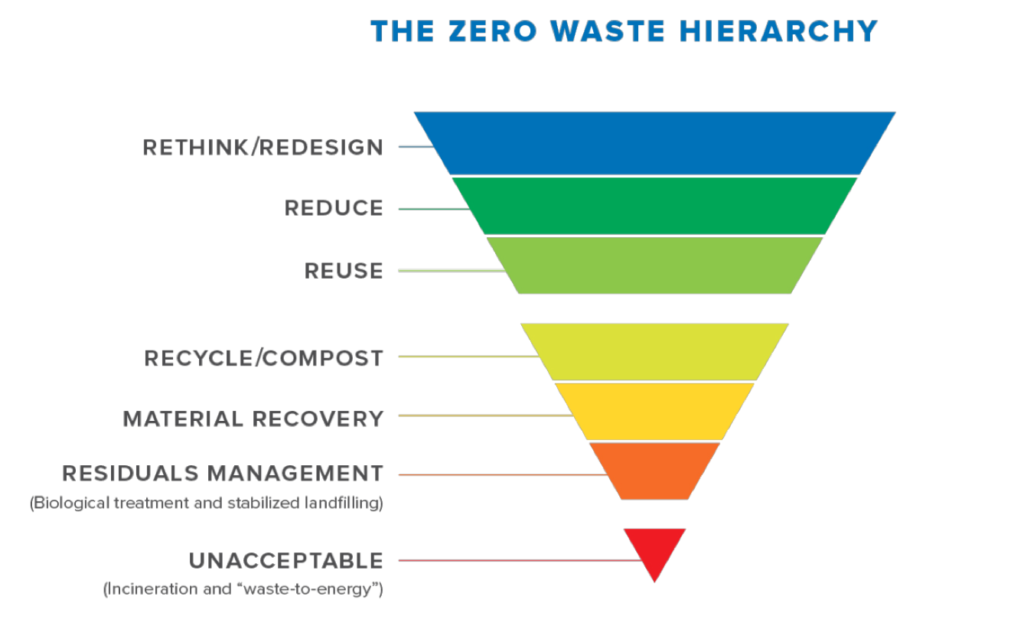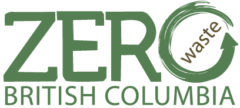There is so many ways to reduce waste and many organizations working on this. Please see below for a curated set of resources for different topics.
Zero Waste Hierarchy
Zero Waste BC supports the Zero Waste Hierarchy adopted by the Zero Waste International Alliance and Zero Waste Canada. More information on the guiding principles, definitions, and detailed levels for each step of the hierarchy can be found here.
This internationally accepted, peer-reviewed definition is important as others try to define it merely as no waste to landfill. Zero Waste is about reducing the throughput of materials to live more lightly on the land.

Food and Organics
When sent to landfill, this waste creates a powerful GHG -methane. But this can be prevented.
Construction and Deconstruction
Waste from this sector accounts for about ⅓ of the waste. Check out these resources to see how to reduce it.
Plastics
This growing problem of fossil-fuel based material needs addressed. The Global Plastic Treaty will help but there are other actions to take as well.
Purchasing and Procurement
Almost everything that is thrown away was bought. Maing smarter choices to begin with is key.
Share, Reuse, Repair
Thinking upstream is the answer!
Textiles
This currently hard-to-recycle sector has many organizations working on it.
Choices for Individuals
While individual action alone will not solve this, it can play a role, and advocacy and showing support are very important.
Government Leadership
Governments at all levels have a key role to play in setting direction and the rules.
Business Innovation
Circularity can give businesses an advantage.
There are also resources available for specific issues such as:
- EV Battery Recycling –GAIA is leading a project on this
- Healthcare and sustainability –CASCADES offers info on waste reduction, and webinars and a newsletter, Canadian Green Health Care Coalition which has resources and a newsletter and Health Care Without Harm which is international.
- Accessibility –How to Make Systems More Accessible -this document is handy for local governments and organizations wishing to reach a wider audience and ensure all people can reach information and participate in reducing waste.
